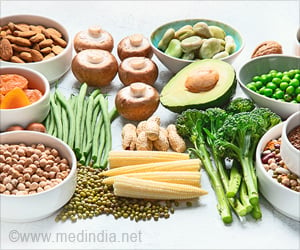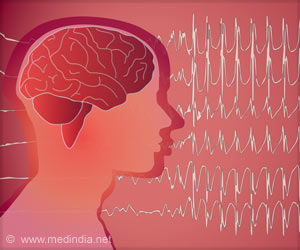- Skipping breakfast can lead to mental health issues and various illnesses
- A balanced breakfast with proteins, carbs, and micronutrients is essential for a healthy start
- Tailoring dinner to include lean proteins and complex carbs supports muscle repair and better sleep
Maintaining a healthy diet is vital, but did you know that eating the appropriate foods at the right times of day is as critical? Experts have shown that particular foods are better consumed at specific times of day. This suggests that eating an additional cheese pizza at the correct moment may not be as bad for your health.
Advertisement
Skipping Breakfast May Lead to Depression
Don’t blame the gloomy weather if you are exhausted all day, struggling to stay motivated, or believe you can get by with simply a cup of scorching hot espresso. Skipping breakfast could be the cause. Breakfast is the first meal of the day and one of the most frequently skipped. However, skipping breakfast could be as bad for you as messaging your toxic ex (maybe a little less).
A study found that skipping breakfast may lead to a cardiac problem (1). Furthermore, another study reveals that skipping breakfast daily may increase the chance of developing illnesses such as obesity, high blood pressure, high cholesterol, and Type 2 diabetes (2). Furthermore, skipping breakfast might lead to mental health issues (3).
Advertisement
What to Eat First Thing in the Morning?
Sanchi Tiwari, a nutritionist at Lord’s Mark Biotech in Mumbai, tells India Today that we should consider our particular nutritional goals before customizing a specific food plan, even for breakfast, but she does offer several elements that can help build a wholesome breakfast.
“It is essential to include a variety of essential proteins, carbohydrates, and micronutrients such as vitamins and minerals to get the right start to the day,” she continues.
Jashan Vij, a health and fat loss instructor, agrees. He believes that starting the day with the correct nutrition sets the tone for energy, focus, and overall well-being. He recommends eating nutrient-dense foods that contain the necessary vitamins, minerals, and macronutrients to jumpstart our metabolism and keep us energized throughout the morning.
Advertisement
Breakfast Meal Plan
Oatmeal
“Rich in fibre, oatmeal provides long-lasting energy and helps stabilise blood sugar levels,” Jashan explains.
Eggs
Eggs are high in protein, which helps keep you full and pleased while also promoting muscle repair and growth.
Greek yogurt
Greek yoghurt, which is high in protein and probiotics, promotes digestive health and helps to control hunger.
Berries
Berries, which are high in antioxidants, vitamins, and fiber, are an excellent way to add sweetness and nutrition to your morning meal.
Whole grain toast with avocado
According to Jashan, this breakfast has healthy fats, fiber, and complex carbohydrates, assuring sustained energy and satiety (the sensation of being full).
Pay Attention to Your Dinner
Dinner is a meal that is frequently overlooked, much like morning. Whether we eat too much or too little, we usually make poor choices for our final meal of the day. “I think people should pay attention to their work regime, calorific requirements, and fitness goals,” Sanchi asserts.
She also recommended that we eat light meals at least two hours before bedtime, as well as a nutritious food that promotes sleep while supporting metabolic activity.
Tips to Plan a Healthy Dinner
The emphasis should also be on nutrients that promote digestion, satiety, and muscular repair. It is best to focus on proteins that will keep one satisfied for eight hours of sleep. This also reduces late-night or early-morning cravings.
Slow-release carbohydrates or low-GI (Glycolic Index) foods, such as oatmeal and whole grains, can help you sleep. Furthermore, fruits like bananas have been shown to relax muscles since they contain high levels of magnesium and potassium. However, keep in mind that, while many people advocate for a fruit-rich diet, fruits include greater levels of fructose, which can strain digestion and cause sugar spikes.
Meal Options for Dinner
Foods high in lean proteins (chicken, fish, and tofu) supply the amino acids required for muscle repair and regeneration while being easy to digest. Jashn also recommends incorporating leafy greens and vegetables that are high in fiber and low in calories, as they aid digestion and give critical nutrients without feeling heavy. “These foods are easy to digest and contain nutrients that support muscle repair, hormone regulation, and overall recovery,” Jashan explains.
He goes on to say that nutrients like complex carbohydrates found in meals like quinoa and brown rice help to control blood sugar levels and stimulate serotonin production, both of which can help you sleep.
Tailor Your Meals to Support Your Health Goal
Just like breakfast, your dinner should be tailored to your health goals at the end. For example, if you exercise frequently, remember to include more protein in your diet to support muscle repair and growth from sources such as lean meats, dairy, legumes, and protein supplements.
Why You Should Not Skip Your Meals?
Finally, do not skip your meals. Never skip your meals, whether they be breakfast, lunch, or dinner. Why? According to specialists, it may impede metabolism, making it more difficult to maintain or lose weight (4). Remember to eat at regular intervals to maintain your blood sugar steady. Skipping meals can cause blood sugar rises and crashes, increasing the likelihood of insulin resistance and thus the risk of diabetes.
References:
- Effect of skipping breakfast on cardiovascular risk factors: a grade-assessed systematic review and meta-analysis of randomized controlled trials and prospective cohort studies
(Yu J, Xia J, Xu D, Wang Y, Yin S, Lu Y, Xia H, Wang S, Sun G. Effect of skipping breakfast on cardiovascular risk factors: a grade-assessed systematic review and meta-analysis of randomized controlled trials and prospective cohort studies. Front Endocrinol (Lausanne). 2023 Nov 28;14:1256899. doi: 10.3389/fendo.2023.1256899. PMID: 38089630; PMCID: PMC10715426.) - Association between Frequency of Breakfast Consumption and Insulin Resistance Using Triglyceride-Glucose Index: A Cross-Sectional Study of the Korea National Health and Nutrition Examination Survey (2016-2018)
Joo HJ, Kim GR, Park EC, Jang SI. Association between Frequency of Breakfast Consumption and Insulin Resistance Using Triglyceride-Glucose Index: A Cross-Sectional Study of the Korea National Health and Nutrition Examination Survey (2016-2018). Int J Environ Res Public Health. 2020 May 10;17(9):3322. doi: 10.3390/ijerph17093322. PMID: 32397662; PMCID: PMC7246451. - Skipping breakfast and mood: The role of sleep
Chang ZS, Boolani A, Conroy DA, Dunietz T, Jansen EC. Skipping breakfast and mood: The role of sleep. Nutr Health. 2021 Dec;27(4):373-379. doi: 10.1177/0260106020984861. Epub 2021 Jan 11. PMID: 33427580. - Optimal Diet Strategies for Weight Loss and Weight Loss Maintenance
Kim JY. Optimal Diet Strategies for Weight Loss and Weight Loss Maintenance. J Obes Metab Syndr. 2021 Mar 30;30(1):20-31. doi: 10.7570/jomes20065. PMID: 33107442; PMCID: PMC8017325.
Source-Medindia



